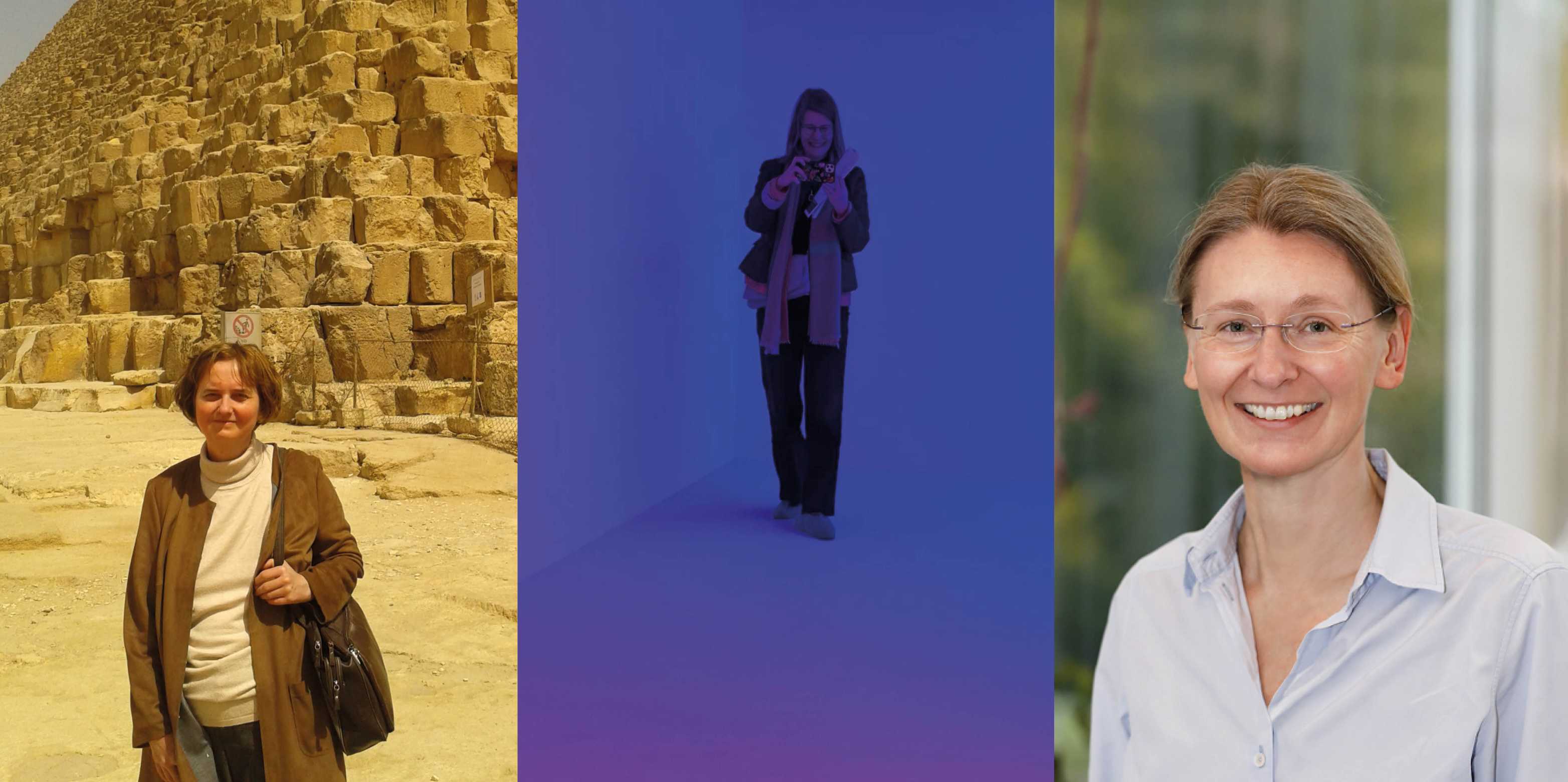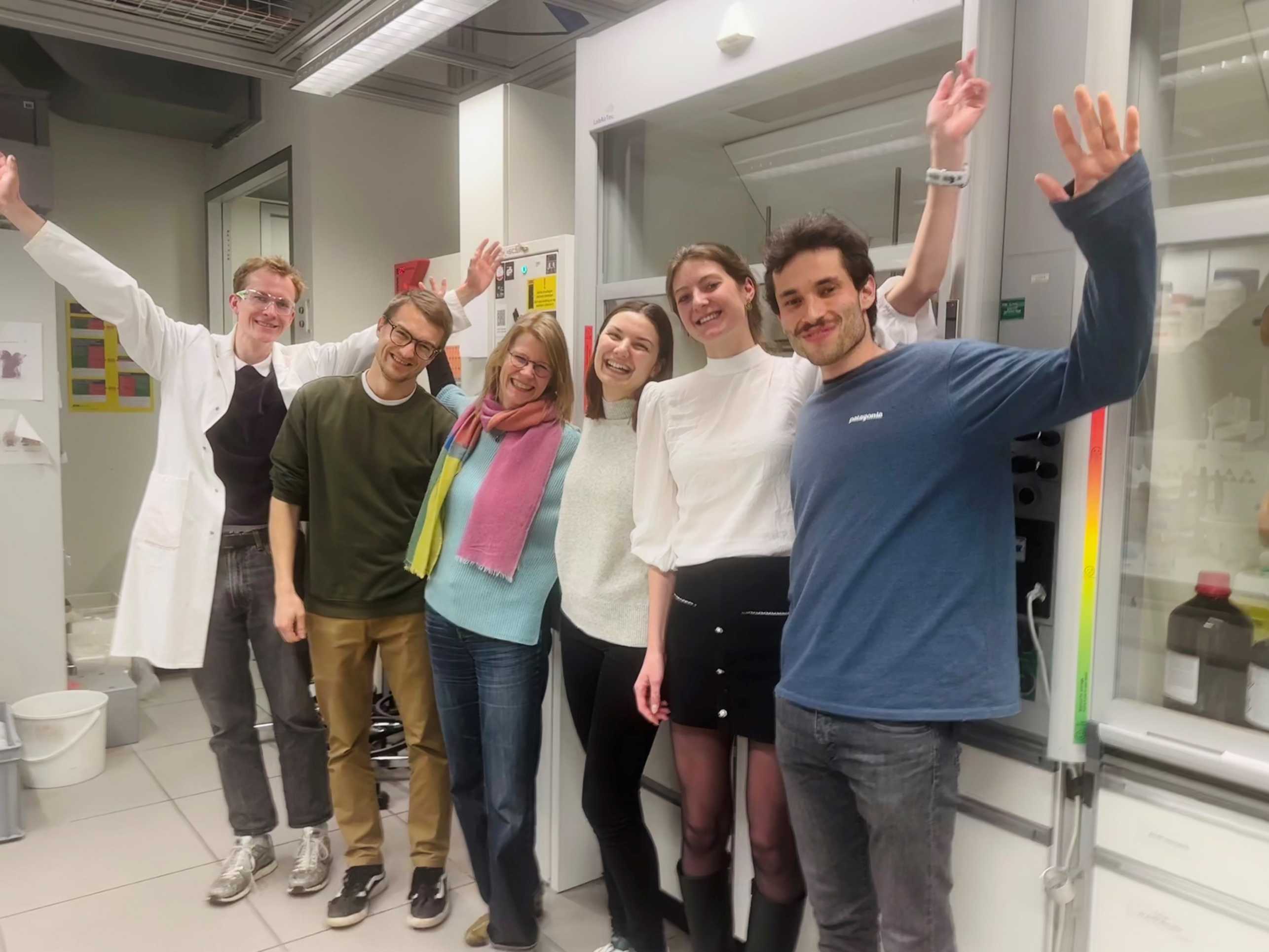
D-CHAB women scientists up close
Ursula Quitterer, Ruth Signorell and Helma Wennemers are among the most experienced women professors at D-CHAB. They have trained countless students, won prizes and set up research groups. But what profession would they have chosen if they hadn't gone into science and what are they most proud of? On today's International Day of Women and Girls in Science, a short questionnaire shows the successful women researchers from a personal perspective.
Ursula Quitterer

Current position: Full Professor of Molecular Pharmacology
Professor at D-CHAB since: 2005
Research focus: "From Heart to Brain”: We elucidate pathomechanisms which connect the most prevalent cardiovascular diseases to the development of neurodegeneration and dementia. Together with identification of new druggable targets we develop prototypes for the therapy of cardiovascular diseases, protein aggregation diseases, and Alzheimer’s disease.
Hobbies: cooking, philosophy, archaeology
I became a scientist/professor because I insisted on my own discoveries.
Chemistry/natural sciences are fun because it’s just like walking through a jungle where you never know the way out.
A (scientific) key moment in my life has been in the dark room, when the x-ray film showed pathologic protein aggregates of the most frequently used drug target in human patients whereas the healthy controls were completely free.
My group has fun by doing excellent science at a world-class institution.
The most important lesson I have learned in my career so far is: do not follow the advice of your professors without good reason.
My advice for aspiring scientists is execute your own ideas.
My motto is: live the moment.
If I hadn't become a scientist, my profession would have been: an archaeologist.
The last time I laughed heartily was when I looked at my inaugural lecture on the ETH web server for the first time after almost 20 years.
If I want to do myself some good in my spare time, I' am going out and enjoy the silence of nature.
If no one is listening, I would listen to the following song: “I will survive” by Gloria Gaynor.
My attitude to swiss fondue is: I like it.
I’m proud of our discovery of the first disease-causing GPCR protein aggregate, which was published in Cell in 2019.
For women in science I would like to see normality, without the need for discussions.
Ruth Signorell

Current position: Full Professor for Physical Chemistry
Professor at D-CHAB since: November 2012
Research focus: We are researching how chemistry is taking place in tiny droplets. Such droplets can be found, for example, in the aerosols in our atmosphere, but also in medical sprays or jet engines.
Hobbies: grandmother
I became a scientist/professor because I wanted to understand how nature works.
Chemistry/natural sciences are fun because it is an interesting challenge with many surprises along the way.
A (scientific) key moment in my life has been every time nature came up with unexpected results.
My group has fun by pursuing their many diverse interests.
The most important lesson I have learned in my career so far is to be flexible and never give up.
My advice for aspiring scientists is to go for what they really like and of which they are convinced.
For women in science I would like to see their full potential flourish.
If I hadn't become a scientist, my profession would have been a forensic technician.
The last time I laughed heartily was because of my grandchildren.
If I want to do myself some good in my spare time, I sleep.
If no one is listening, I would listen to the song Money, Money, Money by ABBA.
My attitude to swiss fondue is that it is ok but not too often.
I’m proud of being able to work with talented coworkers.
My motto is: be flexible and watch out for unexpected opportunities.
Helma Wennemers

Current position: Full Professor of Organic Chemistry
Professor at D-CHAB since: 2011
Research focus: My laboratory develops organic synthetic methods to tackle questions in chemical biology and materials research. This scope includes the development of asymmetric catalysts, synthetic collagen, probes for monitoring and targeting fibrosis, and molecular scaffolds for applications in supramolecular and biological chemistry (e.g., carbohydrate sensors and cell-penetrating peptides).
Hobbies: Art, good food and some sports
I became a scientist to get a better understanding of nature.
Chemistry/natural sciences are fun because one can make molecules for interrogating nature, creating new functional materials, and exploring the unknown.
(Scientific) key moments in my life have been the discovery of a peptide catalyst, a molecular weave, and a probe for visualizing tissue formation.
My group has fun since we can stand each other, both inside and outside the lab – more seriously, we respect and trust each other
The most important lesson I have learned in my career so far is: avoid people who take themselves too seriously.
My advice for aspiring scientists is: go your own way. Role models are important, but everyone has a different path.
If I hadn't become a scientist, my profession would have been an architect.
The last time I laughed heartily was when I asked my group why we are having so much fun.
If I want to do myself some good in my spare time, I visit museums or enjoy the sunshine on my balcony.
If no one is listening, I would listen to: Gitte “Ich will alles” and Herbert Grönemeyer “Männer”
My attitude to swiss fondue is: awesome – provided good gluten-free bread is available.
I’m proud of my students.
My motto is: follow your guts.
For women in science, I would like to see more of us.

Further Information
Female scientists from D-CHAB as entrepreneurs
10 years of community, passion, innovation
external page How to improve the future by acknowledging the past (Podcast Episode)
external page Female researchers and their recipes of success (Podcast Episode, only availabe in German)
Get to know the "Women in Natural Sciences" (WiNS)